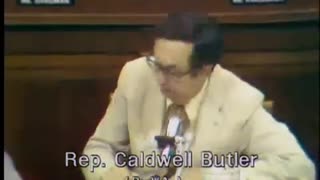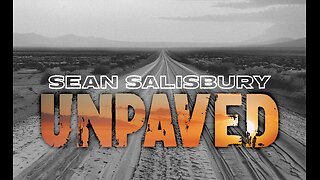Premium Only Content

A History of the 14 Coups Led by the United States - Not Always to its Own Benefit (2006)
A historical analysis of how the United States has overthrown foreign governments over the course of more than a century, starting in the late 19th century with Hawaii and continuing through to Iraq in the early 21st century. The book covers the motivations, methods, and consequences of these interventions, providing a critical view of American foreign policy.
Key Themes and Periods
Economic and Strategic Interests:
Kinzer argues that most of the U.S.-led regime changes were motivated by economic interests, particularly the desire to control resources like sugar in Hawaii, bananas in Central America, or oil in the Middle East. Strategic concerns, such as the desire to counter rivals or protect American businesses, were also significant.
Early Examples: Hawaii and the Caribbean:
The book begins with the overthrow of the Hawaiian monarchy in 1893, driven by American sugar planters and supported by U.S. military forces. This set a precedent for future interventions. Kinzer also discusses interventions in Cuba, Puerto Rico, and the Philippines following the Spanish-American War.
The "Banana Republics":
In the early 20th century, U.S. interventions in Central America and the Caribbean, such as those in Nicaragua, Honduras, and Guatemala, were largely driven by the interests of American corporations like the United Fruit Company. These interventions established the term "banana republics" and showed the U.S. willingness to use military force to protect its economic interests.
Cold War Era:
During the Cold War, U.S. regime change efforts were often justified by the need to combat communism. Kinzer discusses cases such as the CIA-led coups in Iran (1953) and Guatemala (1954), the Bay of Pigs invasion in Cuba (1961), and the intervention in Chile (1973). These actions were often framed as necessary to prevent Soviet influence but had long-lasting negative impacts on the affected countries.
Late 20th Century and Beyond:
The book also covers more recent interventions, such as the invasions of Grenada (1983) and Panama (1989), the Gulf War (1991), and the Iraq War (2003). These later interventions are shown to be part of a continuing pattern of American interventionism, often with disastrous results for the targeted countries and for U.S. interests in the long term.
-
 8:57:26
8:57:26
The Memory Hole
8 months agoNixon Impeachment Hearings Day 7 (1974-07-30)
1.55K1 -
 LIVE
LIVE
Sean Unpaved
1 hour agoBLUE JAYS SHOCK THE WORLD: Series Tied!, NFL Deadline Meltdown + NBA's Cup Chaos Begins
76 watching -
 1:05:30
1:05:30
The Rubin Report
3 hours agoZohran Mamdani Forced to Explain Why He Lied as Media Turns on Him
25K40 -
 LIVE
LIVE
Dr Disrespect
2 hours ago🔴LIVE - DR DISRESPECT - BATTLEFIELD 6 - REDSEC DUOS - WIN WIN WIN
2,076 watching -
 LIVE
LIVE
Side Scrollers Podcast
3 hours agoAngry Joe’s TDS/Halo Meltdown + Console War is OVER + Twitch Staff FIRED + More | Side Scrollers
740 watching -
 LIVE
LIVE
The Shannon Joy Show
2 hours agoThe Persecution Of Reiner Fuellmich - The World’s Original COVID Whistleblower! With Human Rights Advocate Seba Terribilini
243 watching -
 1:25:13
1:25:13
The Mel K Show
2 hours agoMORNINGS WITH MEL K -Declass Tidal Wave: The Unstoppable March Towards Justice - 10-29-25
17.5K7 -
 1:01:54
1:01:54
Grant Stinchfield
2 hours ago $2.50 earnedGAVIN NEWSOM FOR PRESIDENT?! AMERICA’S NEXT DISASTER IN WAITING!
16.7K7 -
 LIVE
LIVE
LFA TV
16 hours agoLIVE & BREAKING NEWS! | WEDNESDAY 10/29/25
2,640 watching -
 15:52
15:52
Professor Nez
2 hours agoTHIS is REALLY BAD for Democrats! NEW Epstein Bombshell JUST DROPPED!
14.5K4